
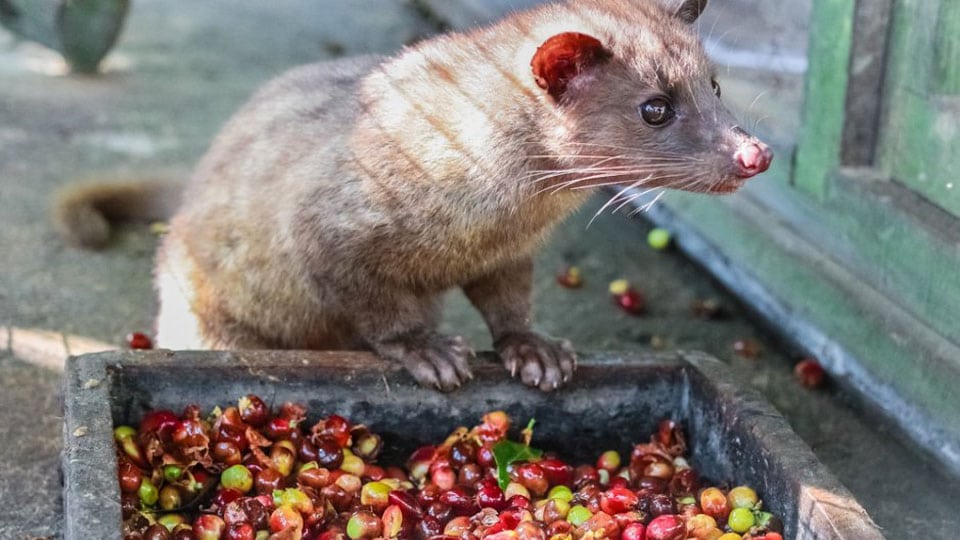
The production of the Luwak coffee, one of the most expensive and unusual coffee beans in the world, has been recently set up in the Karnataka state in southern India using Asian palm civets as ‘partners’. Starting five years ago with a modest harvest of 20 kg, the first experimental factory hopes to get half a tonne of the product this year, retail prices of which reach $ 500-700 per kg in the world market.
The secret of its excellent taste and flavour is simple and has long been known, this method is successfully used by manufacturers of the Luwak coffee (Kopi Luwak) who settled on the Indonesian islands of Sumatra, the Philippines, as well as in some areas of Vietnam where Asian palm civets (Paradoxurus hermaphroditus) live. These small omnivorous viverrid animals resembling a mix of a cat and a marten, feed on juicy bright red coffee cherries, and hard beans slip through their stomach almost intact. The beans are fermented as they pass through a civet's intestines. Experts say, that a coffee beverage made from such beans "is characterized by a balanced taste with delicate bitterness, a distinctive flavour of butter, nougat and honey, as well as a long, lasting pleasant aftertaste."
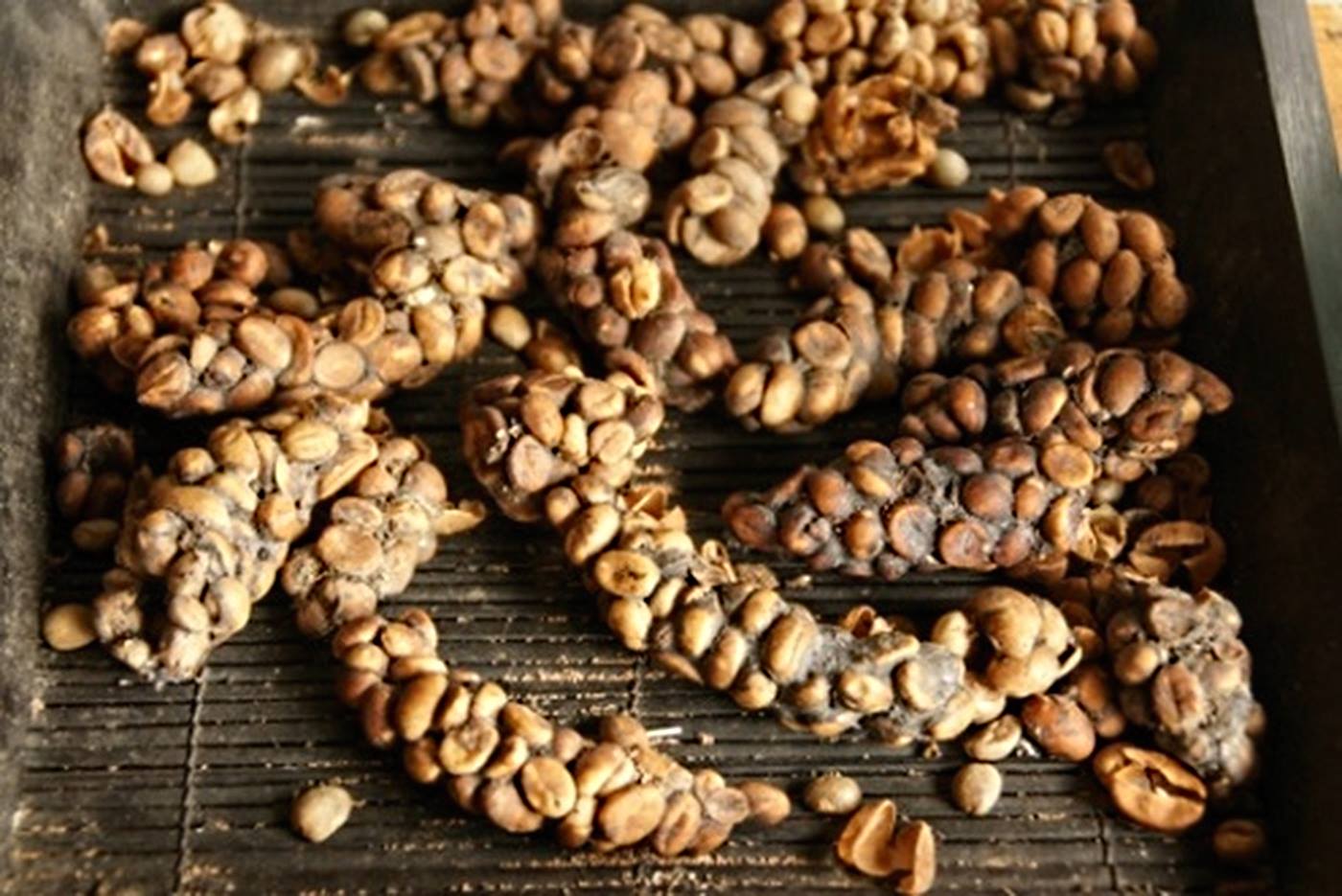
“India is the third largest coffee producer in the world, why don’t we make its most precious varieties as well taking into account that there is such an opportunity,” he asked a logical question. Within a couple of months, Hebbar opened a packaging workshop and hired seasonal workers. He bought a coffee tree plantation from a bankrupted owner, and civets already lived nearby and regularly fed on the best and the ripest coffee cherries leaving expensive excrements that no one here was interested in before.
“Civet cat eats the flesh of the coffee cherries and not the bean. Natural enzymes in civet’s stomach enhance the bean flavour and that’s why this coffee is unique,” he said.
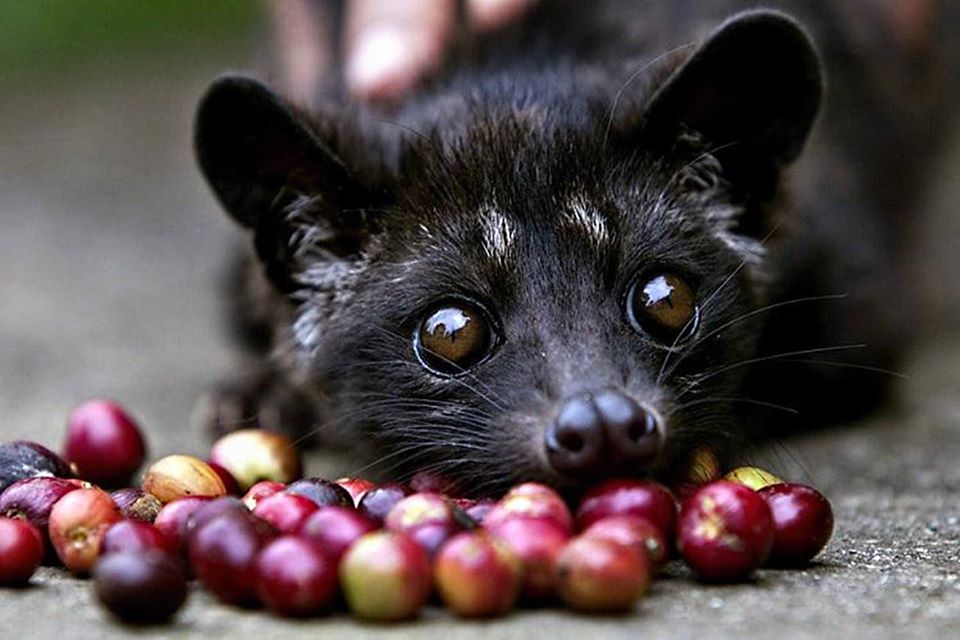
Nowadays, the picker teams in the Karnataka state thoroughly scour through the neighbourhood in search of the civets’ fecal matter, then the sorters carefully sort it out extracting coffee beans, wash and dry them, and after roasting them according to a secret recipe, a cup Luwak coffee reveals its taste and flavour most fully and harmoniously.
“Initially, 20 kg of civet coffee was produced. After establishing the start-up firm, 60 kg was produced in 2016 and 200 kg last year,” says Narendra. “We hope half-a-tonne production from the new crop to be harvested from October.”
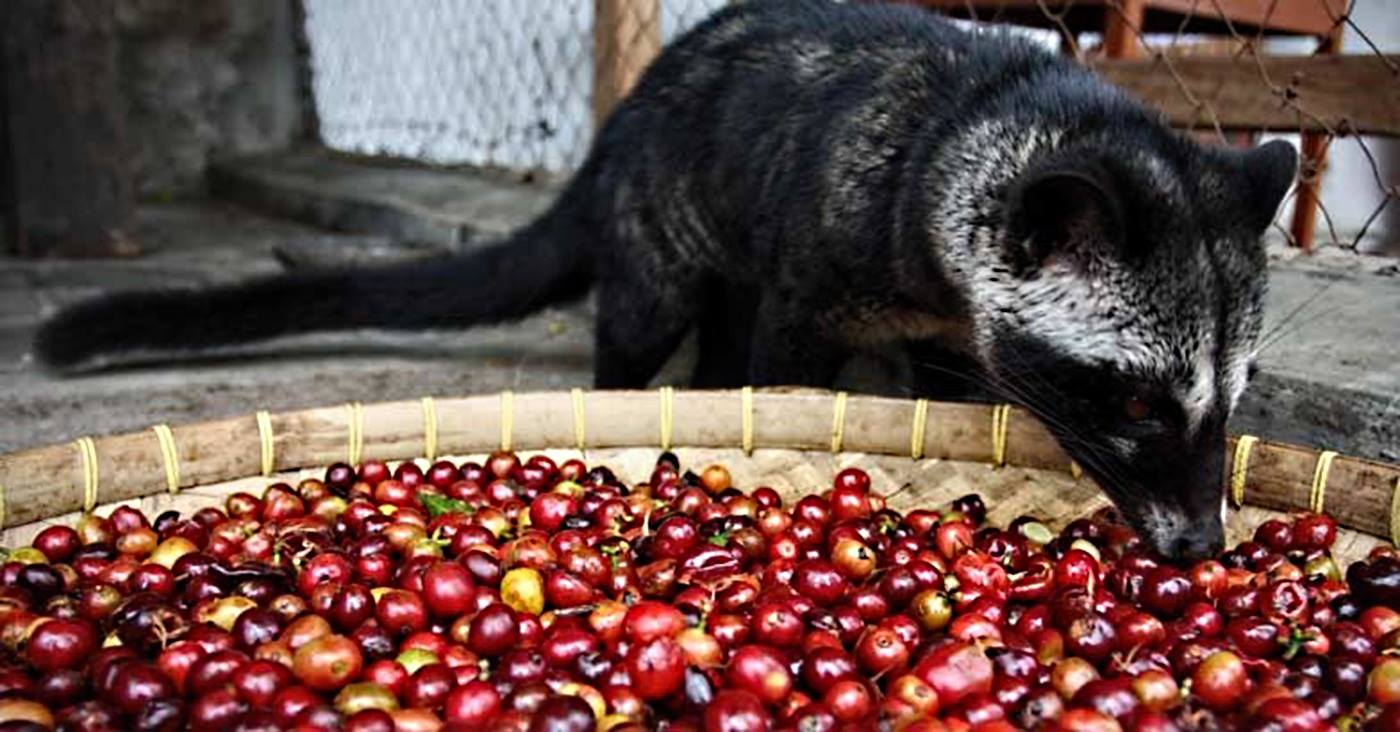
While the company owned no coffee houses, they sold precious beans to Indian premium cafés and chains that attract a lot of visitors with this exotic coffee. For example, you can taste a cup of Civet Coffee currently sold under the brand Ainmane (meaning ‘bliss’ in Hindi) or buy a bag of Civet Coffee beans, (‘a Cat’s Poop Coffee’ as it is also called in India), at Madikeri, the all-India coffee production and trading centre, at the Club Mahindra Madikeri Resort, at a surprisingly low price of Rs.8,000 per kg (about $120). In the Gulf countries and in Europe, the Civet Coffee is sold even in bulk at Rs.20,000-25,000 per kg ($300-380), but with a low level of production and high certification costs, Narendra is only dreaming of entering foreign markets and is working on taking on the domestic market.
And the process has begun - in the middle of the last year, Narendra and his business partner Tamu Povaya Thamoo Poovaiah succeeded in opening their first café and store in Bangalore, the capital of the Silicon Valley of India. The original Ainmane Café and Specialty Store is located in the Indira Nagar area, very successful for walking and shopping, and it is surrounded by many shops and malls. Here, you can buy a 100-gramme bag of the famous coffee at a price of Rs.900 ($12.6) or a tiny cup of aromatic coffee for Rs.300 to decide if the pleasure is worth stocking up on this expensive Luwak coffee for the future.
Meanwhile, the Luwak coffee, beans for which are obtained from the animal excrements, is not the only one of its kind and even not the most expensive. The priority is given to the gourmet Black Ivory coffee, gourmands are ready to lay out up to $50 for a cup of Black Ivory, and - up to $1,500 per kg of beans. It is produced in Thailand, and the beans are extracted from the fecal matter of the largest terrestrial animal on the planet.
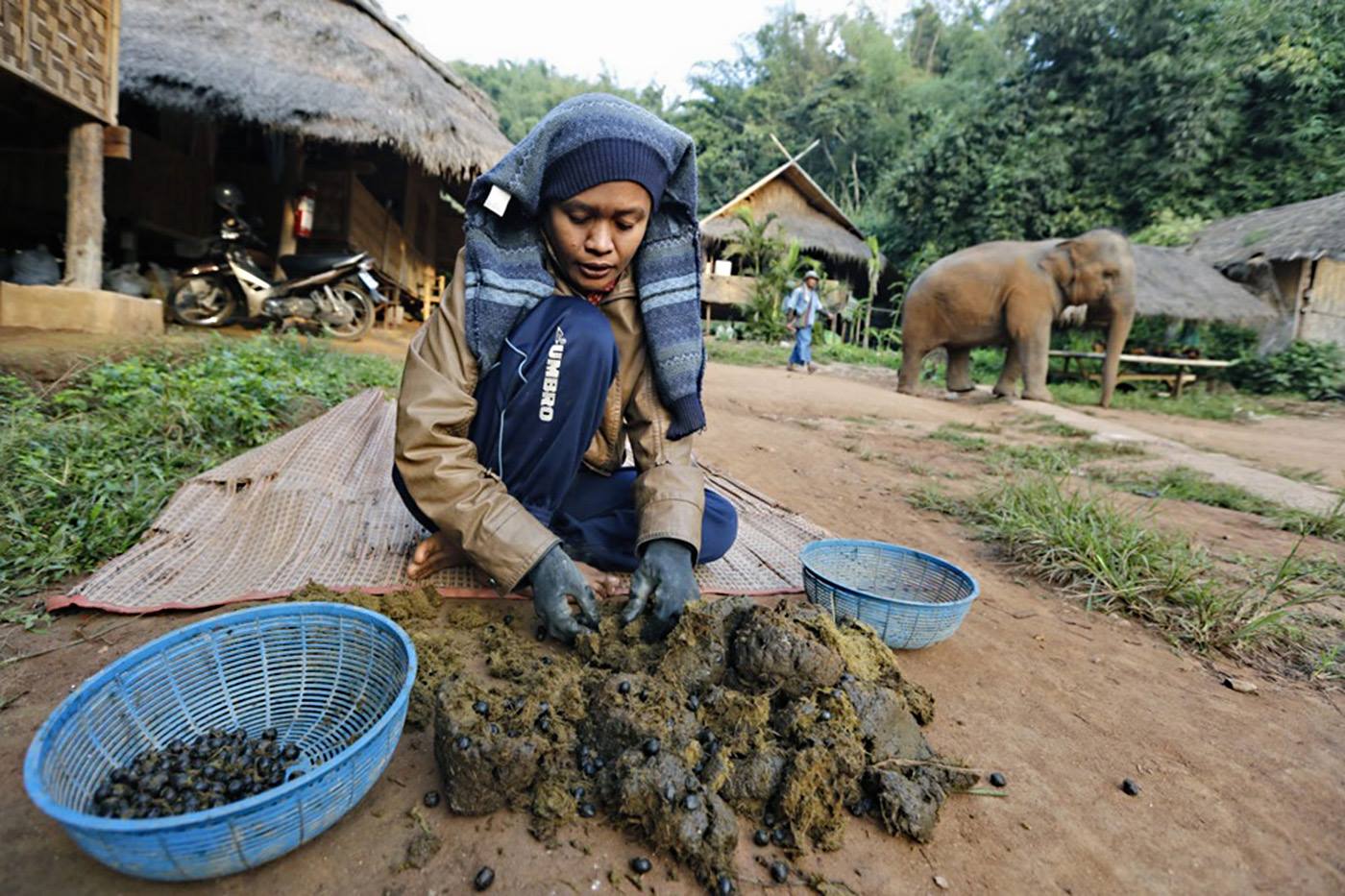
To date, about thirty elephants are used in the ‘processing’of beans for the production of this coffee in Thailand. However, in India, people are already mulling over following the experience of their Asian neighbours - as you know, the largest number of tame elephants are in India. According to Narendra Hebbar, the CCC representatives planned to visit this special elephant farm in Thailand to taste the famous coffee just where it is produced, as well as to adopt the methods and best practices used by their colleagues.
